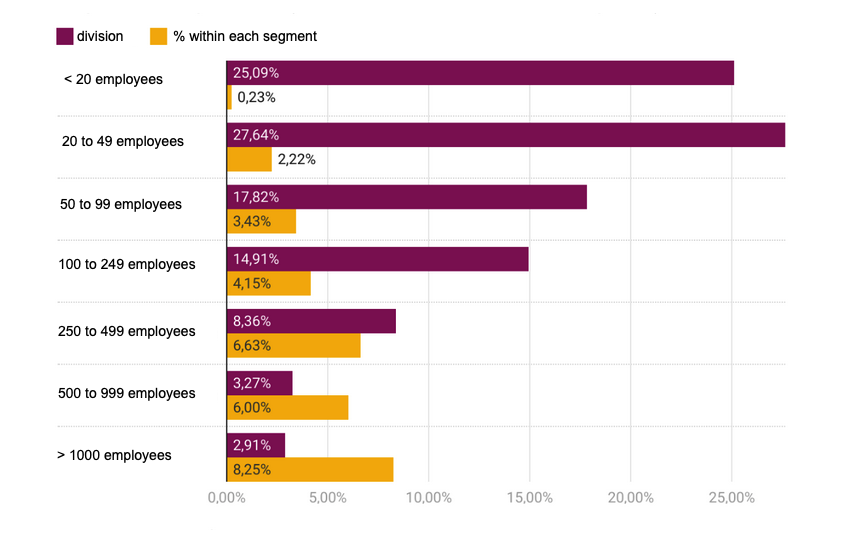
SD Worx: ‘One in 500 Belgian employees has mobility budget’

Distribution of employers with a mobility budget by organization size /sdworx
Today, one in 500 Belgian employees has a mobility budget (MOB). Their number almost doubled in one year: from 0,10% in 2021 to 1,18% in 202


Comments
Ready to join the conversation?
You must be an active subscriber to leave a comment.
Subscribe Today